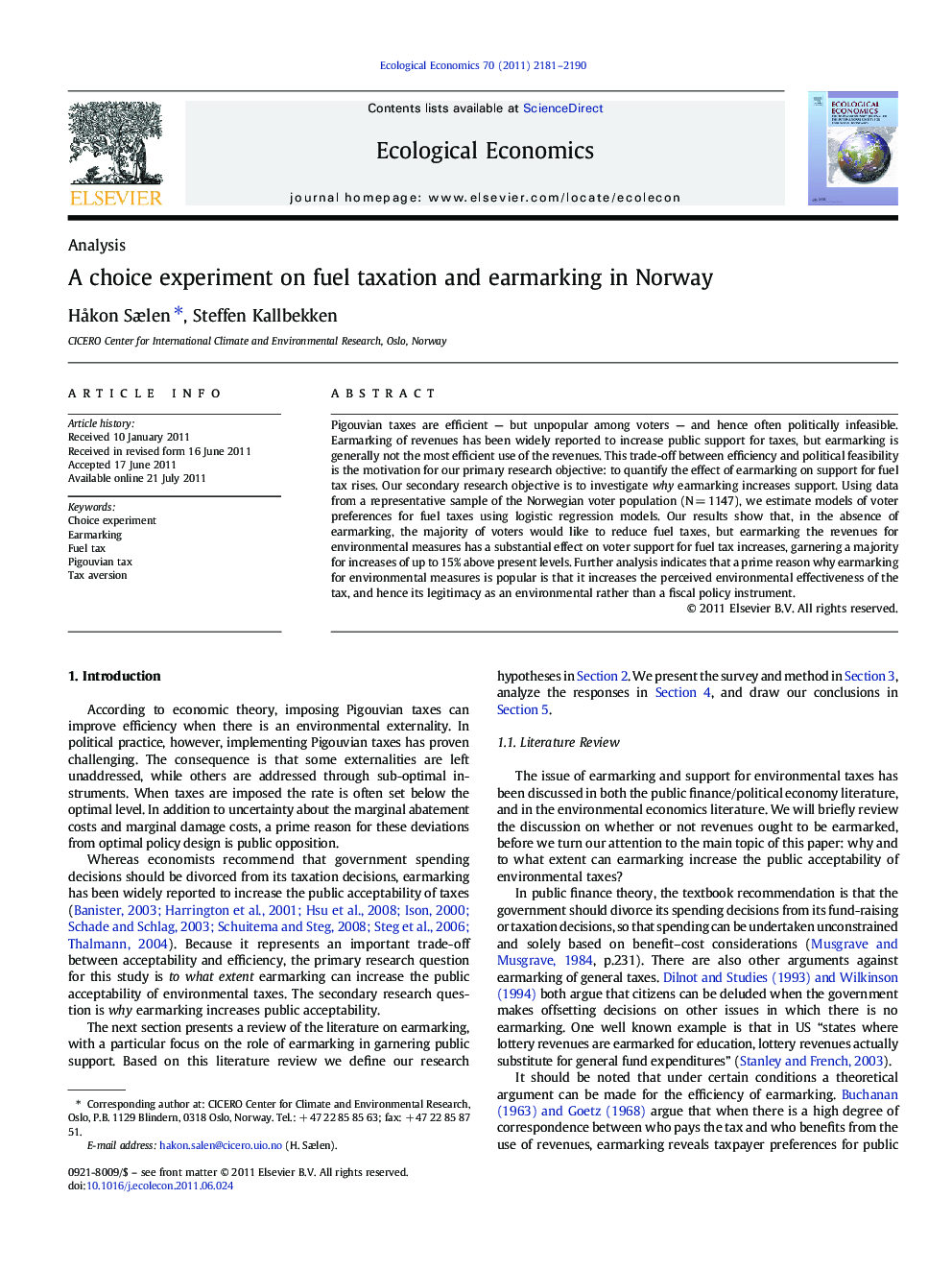| کد مقاله | کد نشریه | سال انتشار | مقاله انگلیسی | نسخه تمام متن |
|---|---|---|---|---|
| 5050585 | 1371093 | 2011 | 10 صفحه PDF | دانلود رایگان |

Pigouvian taxes are efficient - but unpopular among voters - and hence often politically infeasible. Earmarking of revenues has been widely reported to increase public support for taxes, but earmarking is generally not the most efficient use of the revenues. This trade-off between efficiency and political feasibility is the motivation for our primary research objective: to quantify the effect of earmarking on support for fuel tax rises. Our secondary research objective is to investigate why earmarking increases support. Using data from a representative sample of the Norwegian voter population (NÂ =Â 1147), we estimate models of voter preferences for fuel taxes using logistic regression models. Our results show that, in the absence of earmarking, the majority of voters would like to reduce fuel taxes, but earmarking the revenues for environmental measures has a substantial effect on voter support for fuel tax increases, garnering a majority for increases of up to 15% above present levels. Further analysis indicates that a prime reason why earmarking for environmental measures is popular is that it increases the perceived environmental effectiveness of the tax, and hence its legitimacy as an environmental rather than a fiscal policy instrument.
⺠Environmental taxes are efficient, but unpopular among voters. ⺠A majority of Norwegian voters prefer lower fuel taxes. ⺠Earmarking makes it acceptable to a majority to increase fuel tax rates by 15%. ⺠Earmarking is popular because it increases the perceived environmental effectiveness. ⺠Acceptability increases as people expect to benefit personally from earmarking.
Journal: Ecological Economics - Volume 70, Issue 11, 15 September 2011, Pages 2181-2190